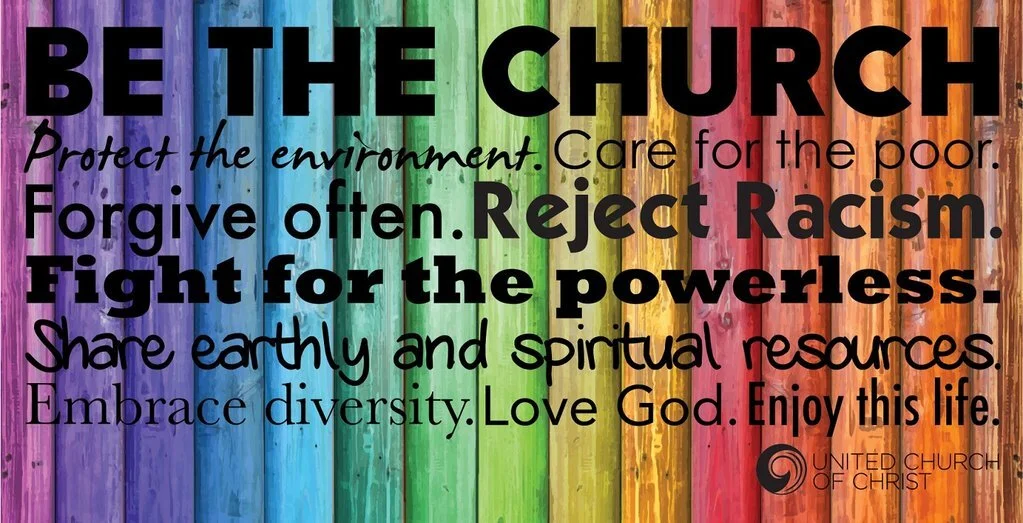Faith and Politics
“There is no such thing as a nonpolitical Christianity. To refuse to critique the system or the status quo is to fully support it – which is a political act well disguised.” -Richard Rohr
“We do acknowledge that the Gospel has deeply political edges to it, but that should not surprise anyone. Jesus was killed because of how He confronted a particular socioeconomic religious system. He’s a first-century Galilean revolutionary who proclaimed a Kingdom other than the kingdom of Herod, so the Gospel does have political edges. The interest is in giving voice to people who have no voice and using all of our abundance and wealth and resources on behalf of those who have a shortage.” -Rob Bell
The church provides a space and place for folks to be community together. How we hold space is political. Politics is the means by which we structure our communal living. In the wider church, we even call our organizational structure polity. Politics isn’t inherently good or bad. People use politics all the time. Sometimes people benefit from politics even when they don’t realize it.
Land of the Sky acknowledges that the One we follow died a political death. Jesus ministered in a religious-political world in which he called in and proclaimed belovedness to the outcast and the marginalized. Jesus lifted the people from places of poverty of spirit and poverty of wealth. He preached hope in the possibility of God’s love, mercy, and grace. Jesus and the good news he preached was a political critique of the unjust systems created by the purity culture of his day. He was preaching against the way society had organized their communal living because it was hurting the most vulnerable.
Jesus’ first recorded public appearance after he begins his ministry is in the synagogue in Nazareth, the city from where he comes. He proclaims, “The Spirit of the Lord is upon me, because he has anointed me to bring good news to the poor. He has sent me to proclaim release to the captives and recovery of sight to the blind, to let the oppressed go free, to proclaim the year of the Lord’s favor.” Luke 4:18-19
Throughout time people of faith have proclaimed the order of things to be ordained by God. It was papal edicts that justified the colonization and seizure of land that this nation was built on. It was the holy scriptures that slaveholders used to justify their violence and destruction of human life. Too often, these human decisions, wrapped in religion, allow the privileged to abdicate responsibility for creating a world where the order of things is just and abundant life is available and realized by all. Sometimes folks will say all will be made better in heaven ignoring the scriptures and the words of Jesus that proclaim “the kingdom of God is among you.” Luke 17:21
Much of the Christian Faith has evolved into the practice of orthodoxy, which means “right thinking,” at the expense of orthopraxy, which means “right action.” All the right words mean nothing if they ignore the work of following in the ways of Jesus. For too long and at the expense of too many beloved children of God, the church has created a checklist of beliefs that determine our relationship with God. Many folks can claim those beliefs and make no changes in how they engage the world and God’s people. Those beliefs can be claimed while creating unjust systems and forces of oppression that work in opposition to the central tenets of Jesus’ life and mission.
The work of the church is to help transform the lives of God’s people and the world. Change is hard and uncomfortable. The gospel will ask you to cede position and privilege and open the door wide and set the table for everyone. The more you have, the more you are asked to give up. “From everyone to whom much has been given, much will be required; and from the one to whom much has been entrusted, even more will be demanded.” Luke 12:48
A life of faith is not intended to be easy. The gospel is unsettling. It should stretch you in your positions, assumptions, and ideologies. It should make you uncomfortable. As followers of the One who was executed for his radical love and ministry in opposition to the powerful forces of his day, a “nonpolitical faith” does not exist. The question is not whether your faith will be political or nonpolitical. The question is whether your faith and engagement in the world will be in service to the Beloved Community or the empire. Either way, your answer to that question will be political. In worship, education opportunities, and service, we are invited into dialogue with one another, to take an inventory of our lives, and to seek a way of being that honors our commitment to live justly, love abundantly, and walk humbly in the ways of Jesus. Our commitment to “Being the Church” will involve us working to create a more just and generous church and world beyond our doors.

